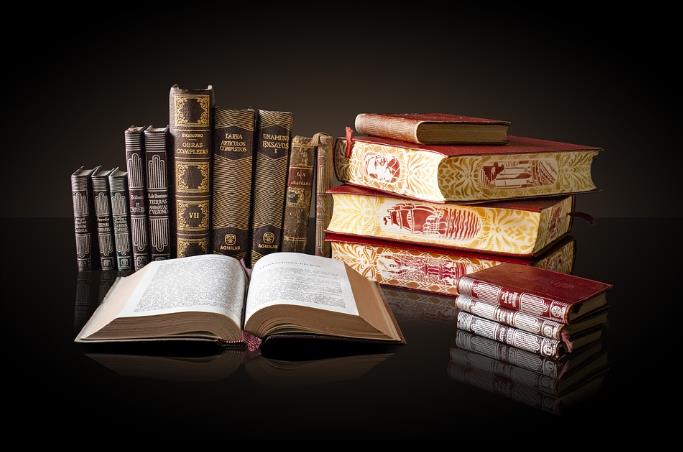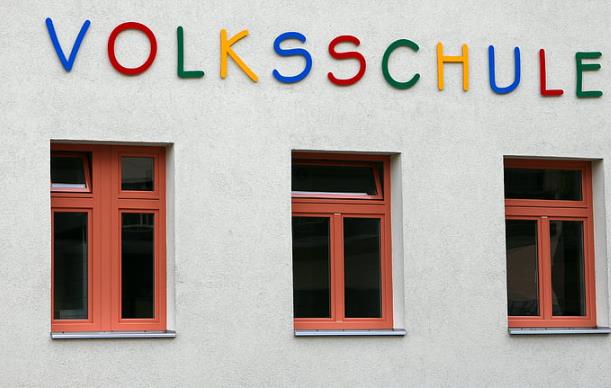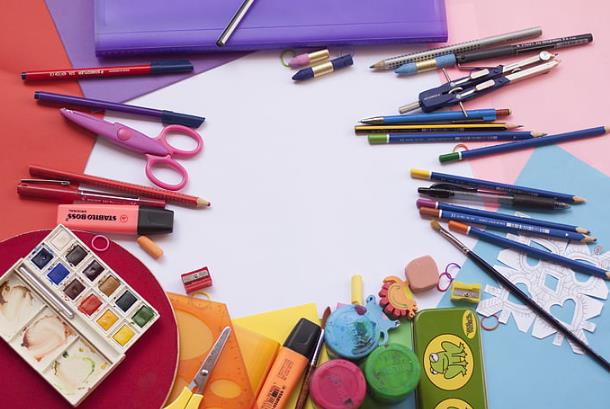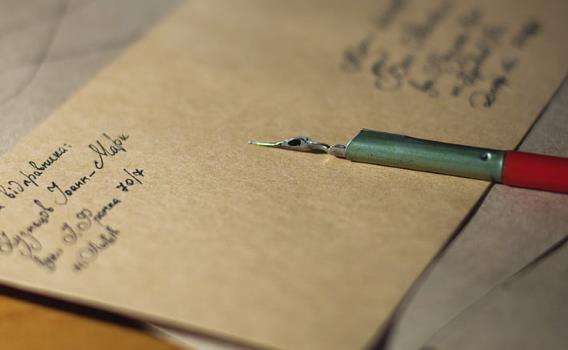中秋快乐用英语高级表达? 中秋节快乐 英文:Happy Mid-Autumn Festival 例句: The Mid-Autumn festival season, I miss you, into a thick brief information, through three thousandfeet high, and then come back and tell you gently turn-bac...
三年级英语

1.大多数情况下以后时be going to结构的用法和各自不同的句型的转换。
2.副词和形容词的转换和用法。
3.过去进行时的用法和注意点。
4.特殊疑问句的用法。
Unit1 How can I get there? 我怎样到达这里?
■重点单词:
where哪里 how 怎样 can可以 near近的 ask 问 tell 告诉 far远的 science科学 hospital 医院 museum 博物馆postoffice 邮局 library图书馆bookstore 书店
usually一般 sometimes有的时候,候 often 常常 know清楚 near旁边 next to旁边(比near更近) crossing 十字路口turn left 向左转 turn right 向右转 go straight直走 in front of在…的前面 behind在...的后面
■重点句子:
1. How do you go to school? 你是什么样去上学的?
2.where is the restaurant? 餐馆在什么地方?
3. Usually I go to school on foot. 我一般走路去上学。
4. Sometimes I go by bike. 有的时候,候我骑自行车去。、
5. 问路以前,出于礼貌,我们要说“Excuse me”与后面的句子要用标点符号隔开。
6. Look at the traffic lights, remember the trafficrules. 看着交通灯,记住交通规则。
7. Stop at a red light. Wait at a yellow light. Go at agreen light. 红灯停。黄灯等一等。绿灯行。
8. Red means stop, yellow means wait, green means go. 红色的意思是停止,黄色的意思是等着,绿色的意思是通行。
9. How can I get to the park? 我该怎样到达公园呢?
10. You can go by the No. 15 bus. 你可以坐15路公交车去。
■重点知识:
1. 坐某种交通工具用by,比如:by bike, by train。而走路用 “on” 比如on foot.
2. 国家名字,地方名字第一个字母要大些:比如:Canada加拿大, China中国, America美国, England英国, Australia澳大利亚
3. 频度副词是表示做的次数多少的词语。从多到少依次排列为:always总是,usually一般,often常常,sometimes有的时候,候,never从不。频度副词可以放在句首,也可放在人称后面。比如:Usually I go to school by bus. = I usually go to school bybus.
4. near近的,far远的。这两个词是一对反义词。注意:not near= far, not far = near.
5. 时间前面用at. 比如:在三点钟:at 3 o’ clock.
6. 交通灯traffic lights,交通规则:traffic rules。这大多数的国家都是靠右行驶的:drivers drive on the right side of the road. 记住England and Australia,drivers drive on the left side ofthe road.英国和澳大利亚,司机是靠左行驶的。
7. on foot= walk, 都是走路的意思,但是,用法不一样,on foot用在句子末尾,而walk用法与go一样,可以代替go的位置。 比如:走路回家:walk home 走路去上学:walk to school 走路去上班 walk to work 走路去医院walk to the hospital
Unit2 Ways to go to school 上学的方式
■重点单词:
by bike骑自行车 by bus坐公车 by train坐火车 by plane坐飞机byship坐轮船 by subway坐地铁
by taxi 乘出租车 on foot= walk 走路
Excuse me打扰一下 please请 buy买 want to想要 a pair of一双 get on上车 get off下车 turn left左转 turn right右转am上午 pm下午 now目前look for找寻 top停止 wait等着 get to到达 driver司机must一定要
■重点句子:
1. Let’s go to the nature park,让我们一起去公园吧!
2. How do we get there?我们怎样到达这里?By bus乘公交。
3. The park is over there,公园在那里。
4. Let’s go .我们一起出发吧!
5. Slow down and stop at a yellow light.黄灯等一等。
6. Stop and wait at a red light.红灯停。
7. Go at a green light.绿灯行。
■重点知识:
1. Is there 开头的问句怎么回答呢?比如:Is there a cinema near here? 只要把前两个词语的顺序换一下完全就能够了,肯定回答是:Yes, there is. 否定:No, there isn’t.
2. buy 和 by的区别,这两个词语发音一样,但是,意思完全不一样,by:乘,坐 buy:买
3. 地址位置名词前面一定要有the,比如:Where is the cinema?How can I get to the hospital?
4. 时间前面用at. 比如:在三点钟:at 3 o’ clock.;不短的一个时期前面用for,比如:三分钟for 3 minutes. 星期前面用on,比如:on Monday, on Tuesday, on Wednesday,on Thursday, on Friday, on Saturday, on Sunday.
5.在表达第几路公交车时,注意No. 的表达,N要大写,后面别少了一点!!!
6.在什么地方上下车,在什么地方左右转,都用介词at,比如:Get on/ off at the cinema. 在电影院的地方上下车。 Turn left/ right at the bookstore. 在书店的地方左右转。
7. by the No. 12 bus= take the No. 12 bus. 坐12路公交车
Unit3 What are you going to do? 你将要做什么?
■重点单词:
take a trip旅行 read a magazine读一本杂志 go to the cinema去看电影 this morning今天上午 this afternoon今天下午 this evening今天晚上 next week下个星期 tomorrow明天 tonight今晚 busy忙碌的 go home回家 post card明信片 comic book漫画书 newspaper报纸 dictionary字典 plant trees种树
■重点句子:
1. What are you going to do on the weekend? 星期六和星期天你将要做什么?
2. I’m going to visit my grandparents this weekend. 我将要去拜访我的祖父母。
3. I’m going to have a busy weekend! 我将要度过一个忙碌的星期六和星期天。
4.I’m going to the supermarket with my mother. 我将要和我妈妈去超市。
5. Where are you going this afternoon? 今天下午你将要去哪?
6. I’m going to the bookstore. 我将去书店。
7. What are you going to buy? 你将要买什么?
8. I’m going to buy a comic book. 我将要去买一本漫画书。
9. When are you going? 你将具体是什么时候去?
10. I’m going at 3 o’clock. 我将三点钟去。
11.What are you going to be? I’m going to be a policeman. 你将要成为什么样的人?我将要成为一名警察。
■重点知识:
1.时间时常放在句子的末尾。比如:What are you going to do this evening?
2.go to school去上学,go to work去上班, go to the cinema去看电影,go后面都要有to,但是,要注意“回家”这个词组是:go home,中间绝对没有to。
3.with: 和,后面时常跟人。比如:I’m going to play footballwith my friends. 我将要和我的朋友一起去踢足球。
4.疑问词:where:哪里(地址位置) what:什么(东西,事情或职业) when:具体是什么时候(时间) how:怎么样(交通工具) who:谁(人) why:为什么(答句中有because)
Unit4 I have a pen pal 我有一个笔友
■重点单词:
pen pal笔友 riding a bike(ride)骑自行车 diving(dive)跳水 hobby爱好watch (watches)TV看电视 playing the pipa(play)弹琵琶
listening to music (listen )听音乐drawing pictures (draw)画画 =painting (paint)
climbing mountains(climb)爬山 playing (play)sport 做运动
play basketball 打篮球 play football 踢足球live (lives) in Beijing居住在北京 go (goes) to work去上班 go (goes) to bed睡觉 go (goes) home回家 teach(teaches) English教英语 read (reads) newspapers读报纸 go hiking 远足 study Chinese 研究中文 cook Chinese food 做中国食物 do word puzzles 猜字谜
■重点句子:
1. What’s your hobby? 你的爱好是什么?=W h at is your hobby?
2. What are your hobbies? 你的爱好是什么?
3. I like reading stories.我喜欢看故事书。
4. He likes collecting stamps, too. 他也喜欢集邮。
5. Does she teach English? 她是教英语的吗?Yes, she does. No, she doesn’t.
6.Do you like English ? Yes, I do.
1. 大多数情况下目前时:表示目前的状态或习惯性的动作。
2. 大多数情况下过去时:表示过去出现的动作或状态。
3. 目前进行时:表示目前已经在进行的动作。
4. 目前完成时:表示过去出现的动作对目前还有影响。
5. 大多数情况下以后时:表示以后要出现的动作。
6. 名词:表示人、物、地方或抽象概念。
7. 形容词:修饰名词,表示人或物的特点或性质。
8. 副词:修饰动词、形容词或其他副词,表示时间、地址位置、程度等。
9. 代词:代替名词,在句子中起指代作用。
10. 数量词:表示数量或程度。
以上就是本文小学六年级英语必考知识点,六年级英语语法知识点归纳下册的全部内容,关注小学教育网了解更多关于文小学六年级英语必考知识点,六年级英语语法知识点归纳下册和三年级英语的相关信息。
本文链接:https://xiaoxue.china-share.com/xiaoxue/28857.html
发布于:小学教育网(https://xiaoxue.china-share.com)>>> 三年级英语栏目
投稿人:网友投稿
说明:因政策和内容的变化,上文内容可供参考,最终以官方公告内容为准!
声明:该文观点仅代表作者本人,小学教育网系信息发布平台,仅提供信息存储空间服务。对内容有建议或侵权投诉请联系邮箱:edit4023@foxmail.com
三年级英语
中秋快乐用英语高级表达? 中秋节快乐 英文:Happy Mid-Autumn Festival 例句: The Mid-Autumn festival season, I miss you, into a thick brief information, through three thousandfeet high, and then come back and tell you gently turn-bac...
三年级英语
小学初级英语入门? 小学的英语要是初级入门,建议可以用牛津版的英语课本,它的设计比较合理,单词具体安排跟分部也比较合适小学生,刚刚开学大约五六岁的小朋友,要视频视频,可以...
三年级英语
用英语早上好? 1,Good morning! 是(上午见上一面时用语)早安,你(们)好和(上午分别时用语)再会的意思。英式发音 [ɡud ˈmɔ:niŋ],美式发音 [ɡʊd ˈmɔrnɪŋ]。 例句,Good morning. Nice to me...
三年级英语
三年级英语第一单元,学的是什么? 第一单元知识梳理知识要点一,认识温度计和酒精灯。 1,正确使用温度计。 三年级英语上册第一单元有什么单词? 三年级上册 第一单元 01 bag 书包 02 b...
三年级英语
小学英语新课程中所指的三维目标是什么? 三维目标是教育理论中的一个新名词。它是指对学生进行教育途中教师应该达到的三个目标即: 知识与技能、过程与方式和情感态度价值观。 三维...